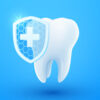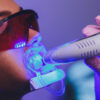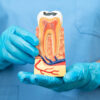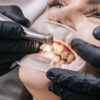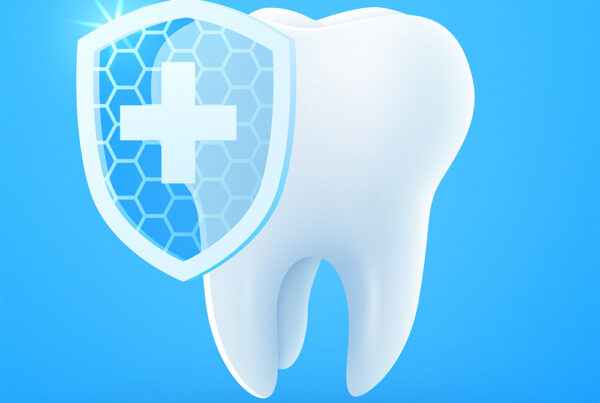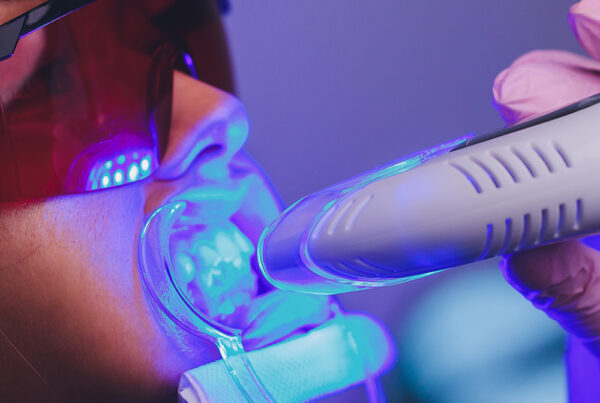When it comes to dental health, you can not solely rely on myths that far from reality. In this blog post, you will learn what you should do to keep your teeth in good condition!
Brushing Teeth Hard
The myth that brushing your teeth too hard will make them whiter is not true. Many people believe that if they brush their teeth with more force, it will help to remove stains and discoloration, but this is simply not the case. Brushing your teeth too hard can actually cause damage to the enamel of your teeth, which can lead to sensitivity and even cavities.
It’s important to understand why this myth is not true in order to maintain healthy teeth and gums. The enamel on our teeth is very thin and delicate, and when we brush too hard we can wear away at it over time. This causes the dentin layer underneath the enamel to become exposed, leading to sensitivity and an increased risk of decay. Brushing too hard also causes gum recession, which can lead to gum disease and further tooth loss.

When it comes to whitening your teeth, there are much better methods than brushing too hard. Professional whitening treatments such as laser whitening or bleaching trays are a safe way to get rid of stubborn stains without damaging your enamel or causing any other harm. You can also try over-the-counter whitening products such as whitening strips or toothpastes that contain hydrogen peroxide or baking soda for milder staining issues.
It’s also important to remember that good oral hygiene habits are essential for keeping your teeth white and healthy. Regular brushing twice a day with a soft-bristled toothbrush is key for removing plaque buildup from the surface of your teeth and preventing discoloration from occurring in the first place. Flossing daily helps remove food particles stuck between your teeth that can contribute to staining as well. Finally, regular visits with your dentist are necessary for professional cleanings and checkups that help keep your smile looking its best.
Brushing too hard won’t make your teeth whiter – in fact, it could do more harm than good! Instead, stick with professional treatments or over-the-counter products when trying to achieve a brighter smile, while still practicing good oral hygiene habits every day for lasting results.
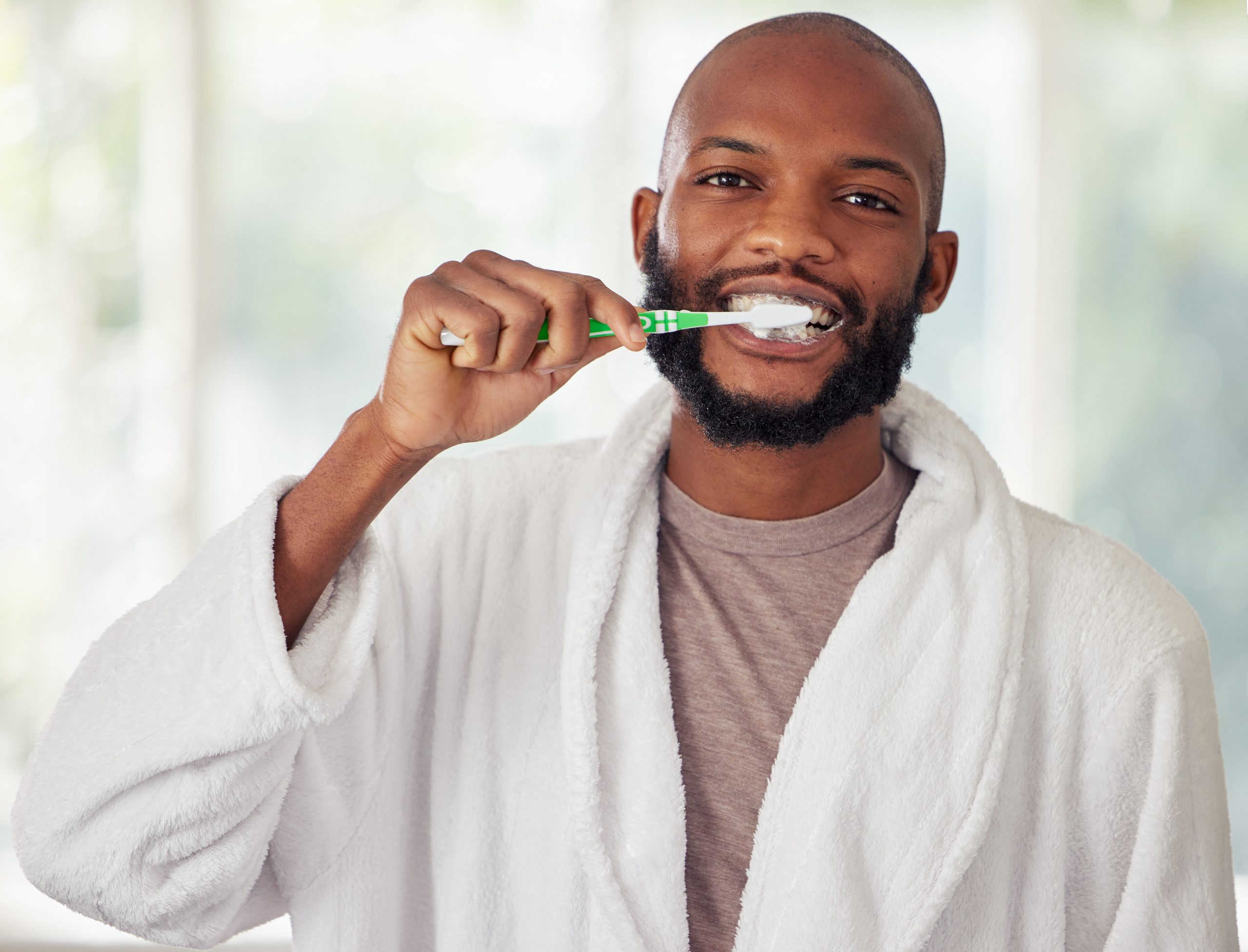
Eating Sugar May Decay Your Teeth
The myth that sugar causes cavities is a long-standing one, but it’s not true. While sugar can contribute to tooth decay, it’s not the only factor involved. Cavities are caused by bacteria in the mouth that feed on sugar and other carbohydrates and produce acid as a byproduct. This acid breaks down the enamel of your teeth, leading to cavities.
So why is there so much confusion about this? The truth is that sugar does play a role in cavity formation, but it’s not the only factor at work. Other factors such as poor oral hygiene, inadequate saliva production, and certain medical conditions can also contribute to cavities.
It’s important to understand that sugar isn’t the only culprit when it comes to cavities. In fact, any type of carbohydrate can cause cavities if it isn’t removed from your teeth regularly through brushing and flossing. This includes foods like bread, crackers, chips, pretzels, pasta, rice, and even fruits and vegetables.
In conclusion, while sugar does play a role in cavity formation, it isn’t the only factor involved. Good oral hygiene habits are essential for keeping your teeth healthy and free from decay. So don’t let the myth of sugar causing cavities fool you – take care of your teeth and gums with regular brushing and flossing as well as professional dental checkups!

Flossing Is Not Necessary On Teeth
Flossing is an important part of oral hygiene and should not be ignored. Despite this teeth myth that flossing isn’t necessary, it can actually help prevent cavities, gum disease, and other dental problems on teeth.
Flossing helps to remove plaque from between teeth and along the gum line. Plaque is a sticky film of bacteria that builds up on teeth and causes decay. If left untreated, plaque can lead to tooth decay, cavities, and gum disease. Flossing helps to remove this plaque before it has a chance to cause damage.

In addition to removing plaque, flossing also stimulates the gums. When you floss between your teeth, you are massaging the gums which helps them stay healthy and strong. Healthy gums are better able to fight off bacteria that can cause periodontal disease or gum infection.
Finally, flossing can help keep your breath fresh by removing food particles that may have become stuck in between your teeth or along the gum line. When these particles aren’t removed they can cause bad breath as they start to rot or decompose in your mouth.
It’s important to note that brushing alone isn’t enough for proper oral hygiene; flossing should be done at least once a day in order to maintain good oral health. To make sure you get all the benefits of flossing, use an 18-inch piece of waxed dental floss every time you brush your teeth; wrap most of the length around each middle finger and hold it tightly with your thumbs and index fingers so there is about one inch of floss taut between them. Gently slide the floss up and down between each tooth making sure to go below the gum line on both sides of each tooth before moving onto the next one.
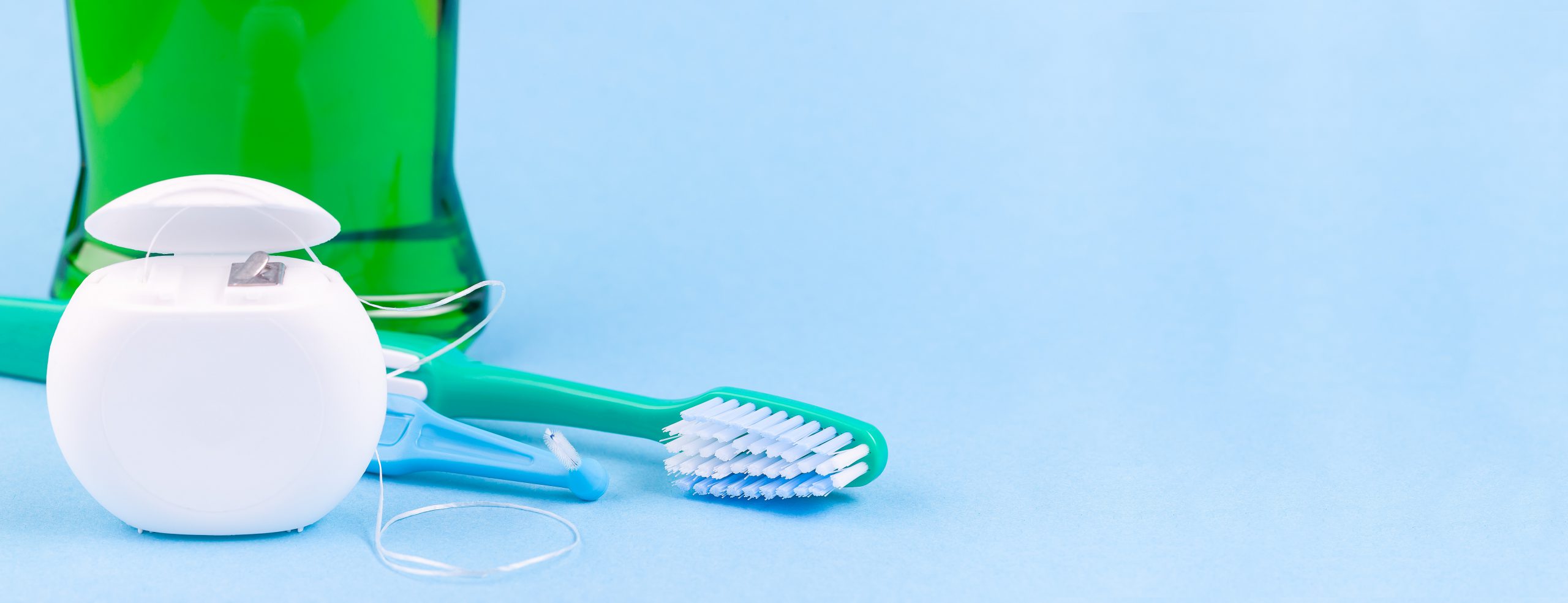
Bad Breath Is Not Equal To Not Brushing Your Teeth Oftenly Enough
Bad breath, also known as halitosis, is a common problem that affects people of all ages. While this myth has a point that poor oral hygiene can contribute to bad breath, there are many other causes that can lead to this condition. In fact, the myth that if you have bad breath it means you don’t brush enough is not true.
Poor oral hygiene can be a contributing factor to bad breath, but it’s not the only cause. Other factors such as certain foods and drinks, smoking, dry mouth, and medical conditions can also lead to bad breath. Poor oral hygiene habits like not brushing or flossing regularly can allow bacteria to build up in your mouth and create an unpleasant odor. Additionally, food particles left behind in your mouth after eating can break down and release foul-smelling compounds.
Smoking is another major cause of bad breath. Not only does smoking contribute to the buildup of bacteria in your mouth and on your teeth, but it also dries out your saliva which helps keep your mouth clean and free from odor-causing bacteria. Dry mouth (xerostomia) is another common cause of bad breath as saliva helps wash away food particles and bacteria from the tongue and other areas of the mouth. Certain medications may also contribute to dry mouth which could lead to bad breath and teeth discolouring.

In addition to lifestyle choices and medical conditions, certain foods and drinks can also contribute to bad breath. Foods with strong odors like garlic or onions contain compounds that are absorbed into the bloodstream where they travel throughout the body including the lungs where they are released when you exhale causing bad breath. Coffee and alcohol are both diuretics which mean they increase urination leading to dehydration which could result in dry mouth leading to bad breath.
Overall, while poor oral hygiene habits like not brushing or flossing regularly can contribute to bad breath, there are many other causes such as certain foods and drinks, smoking, dry mouth due to medications or dehydration, and medical conditions that could be causing your halitosis so it’s important not just focus on brushing more often but look at other potential causes as well for how best treat your condition effectively.
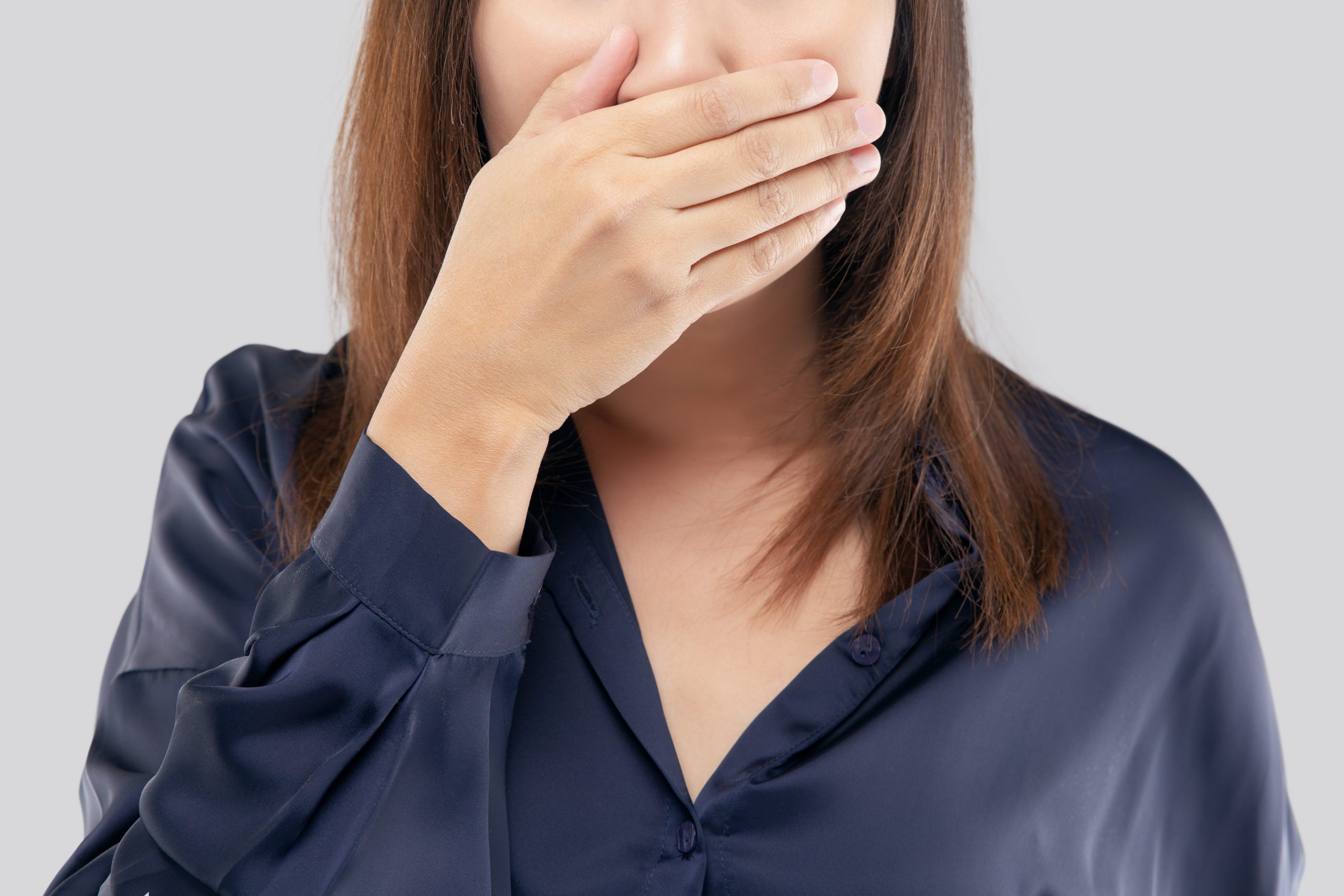
Drinking Water Is Not The Ultimate Solution Against Decaying
The myth that drinking lots of water will keep your teeth healthy and clean automatically without brushing or flossing regularly is not true. While it’s important to stay hydrated, drinking plenty of water alone won’t keep your teeth clean and healthy. In fact, the only way to ensure that your teeth are properly cleaned and maintained is by brushing and flossing them on a regular basis.
Drinking plenty of water can help to keep your mouth clean by washing away food particles and bacteria, but it doesn’t have any direct effect on plaque or other dental issues. Water also helps to increase saliva production in the mouth which can help to neutralize acids produced by bacteria in the mouth. Saliva also helps to wash away food particles which can reduce the risk of tooth decay.
It’s important to remember that drinking lots of water alone won’t keep your teeth clean or healthy – brushing and flossing are essential for maintaining good oral hygiene. Drinking plenty of water may help to support good oral health but it should never be used as a substitute for brushing or flossing regularly.
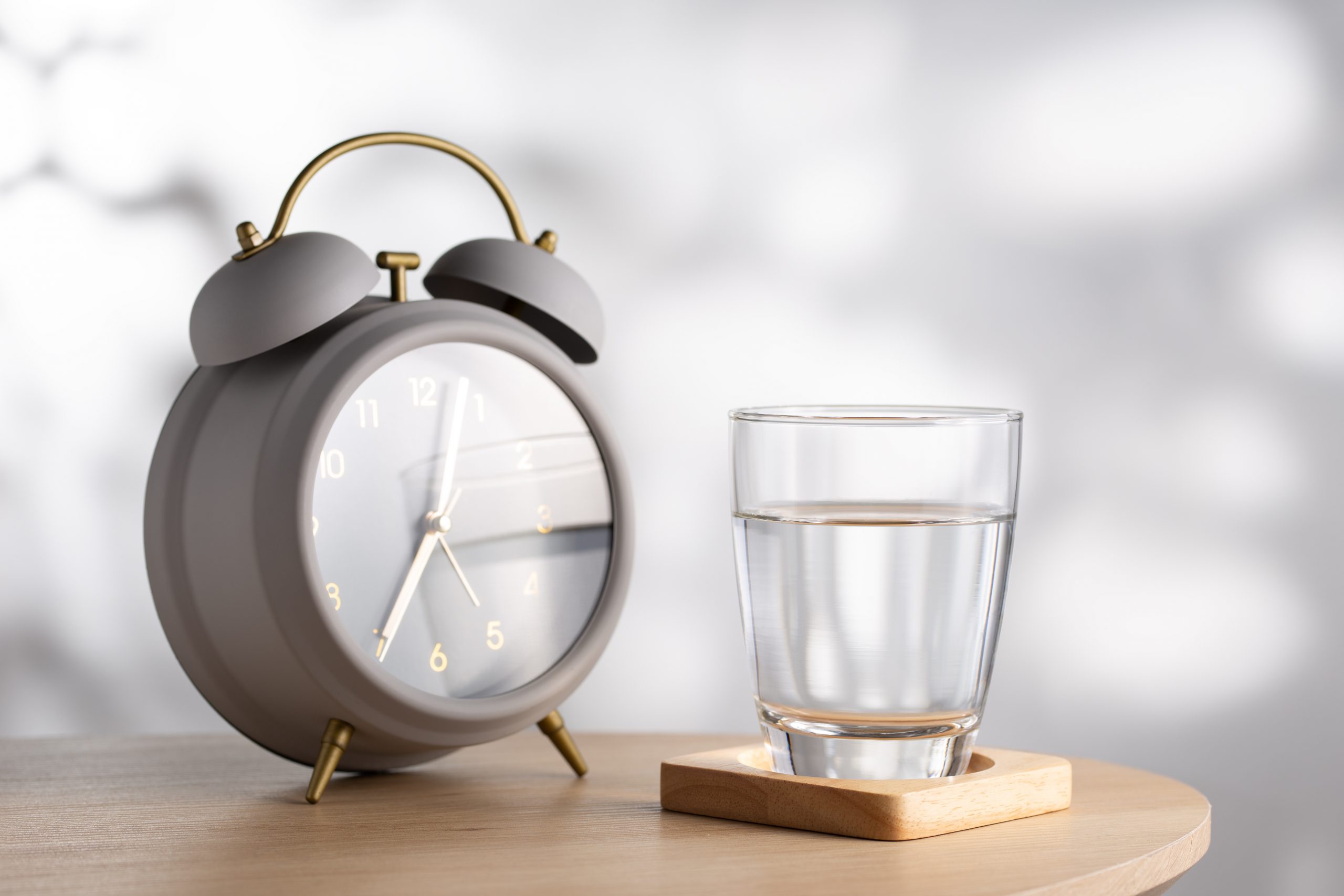
Eating Ice Does Not Freeze Your Dental Health
The myth that eating ice is bad for your teeth is one of the most common misconceptions in oral health. Despite its prevalence, this belief is simply not true. Eating ice will not cause any damage to your teeth, and it can even provide some benefits when consumed in moderation.
First of all, eating ice does not directly harm your teeth. Ice is made of frozen water, which contains no sugar or other substances that can lead to tooth decay. In fact, the cold temperature of the ice may even help reduce inflammation and discomfort in the mouth. Additionally, chewing on hard objects like ice can help strengthen your jaw muscles and increase blood flow to the gums.
However, it’s important to note that consuming too much ice can be detrimental to your oral health. Eating large amounts of ice can lead to excessive wear on the enamel of your teeth and may even cause chips or cracks in them over time. Additionally, if you are prone to grinding your teeth at night, eating a lot of ice during the day could worsen this habit and further damage your teeth.
To ensure that you don’t suffer any negative consequences from eating ice, it’s best to consume it in moderation. If you do decide to eat ice occasionally, make sure you brush and floss after doing so as well as visit your dentist regularly for checkups and cleanings. This will help keep your mouth healthy and free from any potential issues caused by excessive consumption of icy treats.
In conclusion, while there are some risks associated with eating too much ice, this myth that it’s bad for your teeth is simply not true. Eating small amounts of ice every now and then won’t cause any harm to your teeth – just make sure you take proper care of them by brushing twice a day and visiting the dentist regularly!
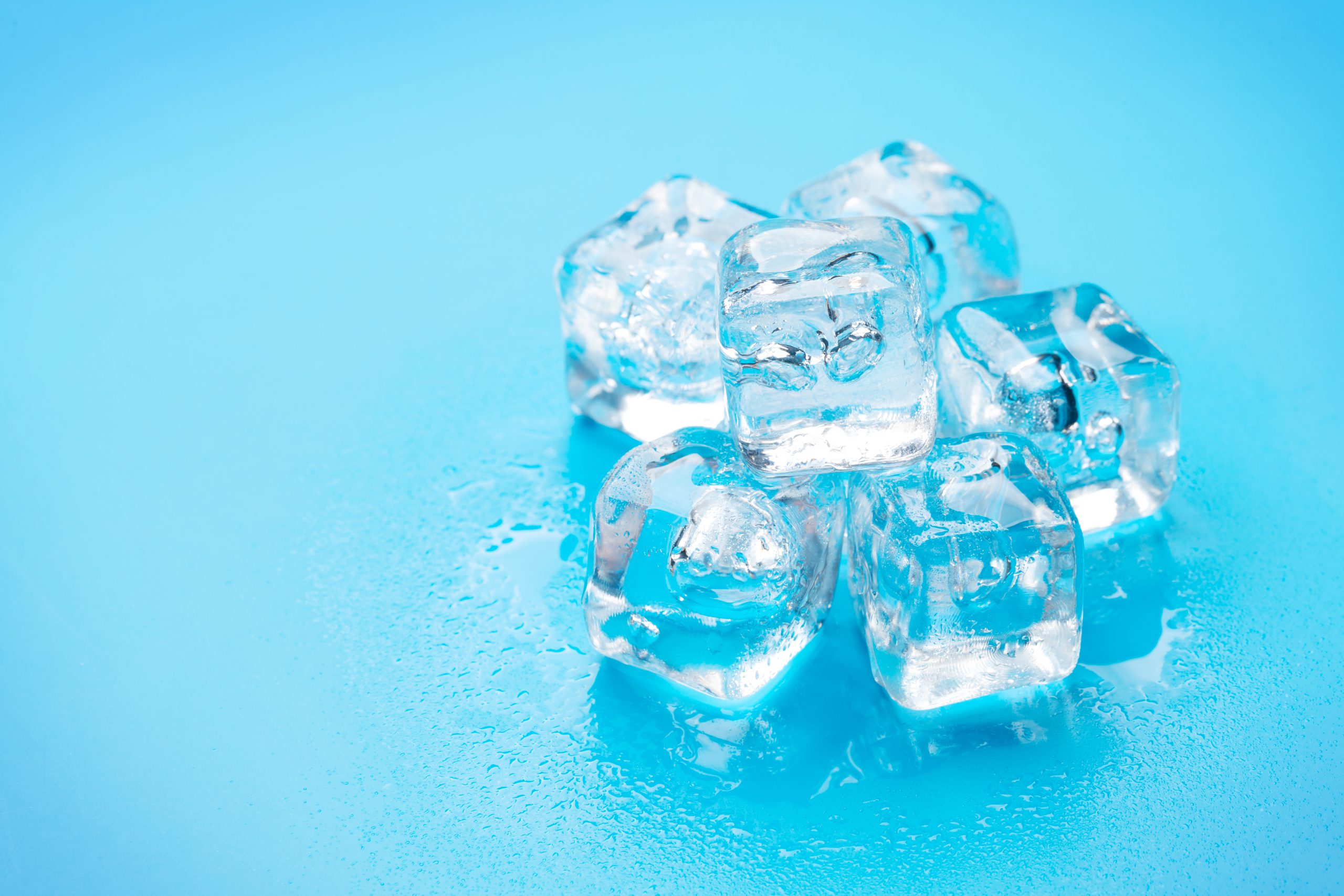
Braces Are Not The Only Option For Teeth
Braces are an effective and popular orthodontic treatment used to correct crooked teeth, overbites, underbites, and other dental issues. While braces can help straighten teeth and create a more attractive smile, they are not the only solution for all dental problems. In fact, many people have complex dental issues that require additional treatments beyond braces alone.
The myth that all dental problems can be solved with braces alone is simply not true. While braces are a great tool for correcting crooked teeth and other minor misalignments, they cannot fix all types of dental issues. For example, if you have a severe overbite or underbite, braces may not be enough to correct the problem. In these cases, surgery may be necessary to realign the jawbone and provide lasting results. Additionally, braces cannot address issues such as missing teeth or gum disease. These conditions must be treated with other methods such as dentures or periodontal therapy.
In addition to being unable to treat certain types of dental problems, there are also some drawbacks to using braces alone as a treatment option. Braces can take several months or even years to produce noticeable results and require regular visits to the orthodontist for adjustments. Furthermore, they can be uncomfortable and cause pain in some patients during the adjustment process. Finally, they can also be expensive depending on your insurance coverage and the type of braces you choose.
While braces can certainly help improve your smile in many cases, it’s important to remember that they are not always the best solution for every dental issue. If you have any concerns about your oral health or think you may need additional treatments beyond just braces alone, it’s important to consult with your dentist or orthodontist for advice on which options will work best for you. They will be able to assess your individual needs and recommend the most appropriate course of action based on your unique situation.

